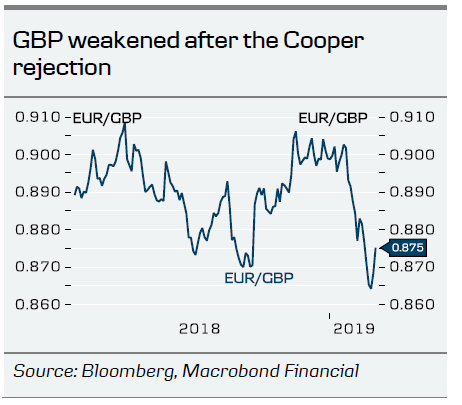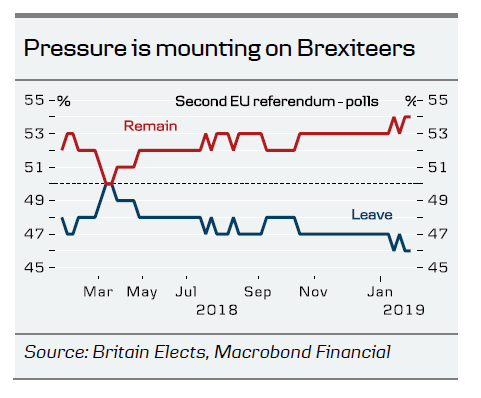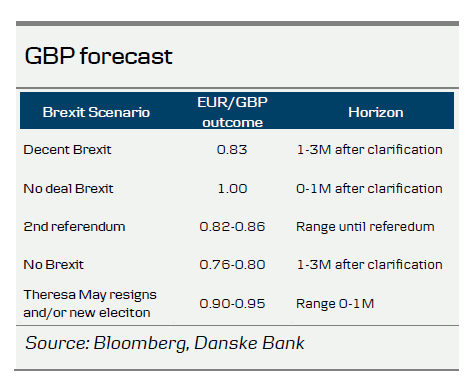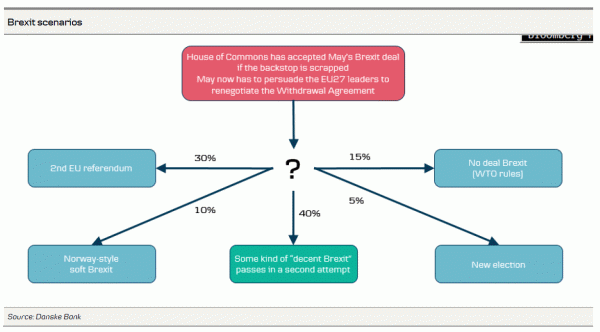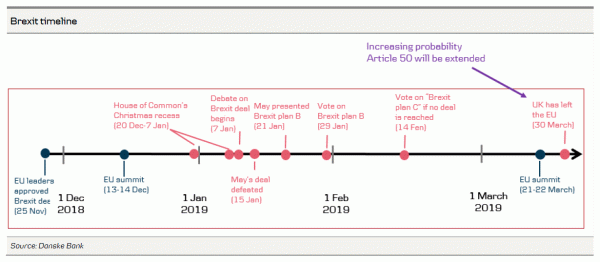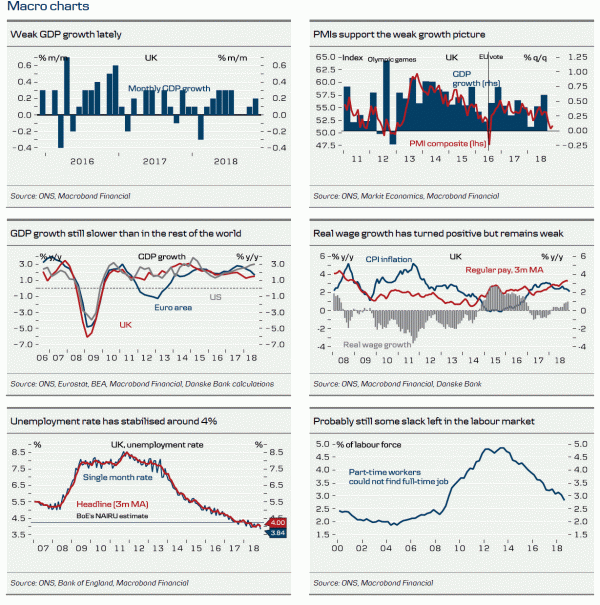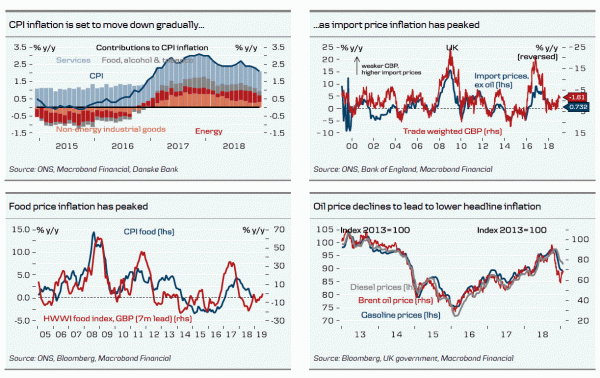Against our expectation, the so-called Brady amendment passed by a small majority (317-301). The Brady amendment says the House of Commons can support May’s Brexit deal, but that the backstop has to be replaced with “alternative arrangements”.
While it is positive for May that she has finally found her majority (probably due to the increasing pressure, as the 29 March deadline is drawing closer), the EU27 responded immediately by repeating it will not renegotiate the Withdrawal Agreement. As the pressure is also mounting on the EU27 given the shared responsibility of the Irish border and due to the possible economic consequences of a no deal Brexit, the EU may be more willing to listen now May can show what is needed for the deal to get over the finish line.
Also against our expectation, the so-called Cooper amendment failed (which would have given the House of Commons a vote on whether to ask the EU for an extension of Article 50 or not in case Prime Minister Theresa May had not won support for a deal by 26 February). During the day, the likelihood of it passing declined, partly because PM Theresa May promised the House of Commons would have another similar vote on 14 February if no deal has passed by then. While GBP depreciated on the loss, we do not think it matters much, as we still think there is a small majority in the Commons who will eventually step in to prevent a no deal Brexit. This is also what the passing of the so-called Spelman tells us (the Spelman amendment says Parliament does not want a no deal Brexit but without any enforcement). Still, it means May basically has two and half weeks to renegotiate the backstop with the EU.
We think today’s results support our base case that PM May’s deal will pass eventually (40%), but uncertainty remains high and will probably stay high until the very end. We have argued for a long time that it is normal political negotiations that we have to get very close to the deadline before we will get a solution. If May does not get a deal, we think a second EU referendum is the second most likely outcome (30%). See also our game tree overleaf.
In our view, one possible way forward could be to extend Article 50 for a longer period and focus on the permanent future relationship. By doing that the two sides can reach an agreement, which would make the backstop redundant, without either side losing face.
EUR/GBP broke above 0.8750 as parliament rejected the Cooper amendment. While the rejection was somewhat of a disappointment for the market, the sell-off in GBP seems fair in the light of past week’s rally as uncertainty remains intact. Overall, however, the risk of a no deal Brexit still appears to be lower compared to a month ago, which justifies a lower range for EUR/GBP, and we expect EUR/GBP to stay within the 0.86-0-89 range near term. We maintain the view that it will require further reduction in the ‘no deal’ Brexit risk for EUR/GBP to test and eventually break below 0.86. This could happen in the case of either 1) improved odds for Theresa May’s deal being passed in parliament, or 2) an extension of article 50 combined with renewed negotiations between UK and EU or 3) if a second referendum is called

